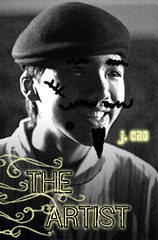It is only in recent times that the phrase ‘thinking soldier’ has ceased to be an oxymoron. The entire idea of soldiering evokes images of medieval men in tin helmets rushing mindlessly into storms of arrows. Taken even from a somewhat more modern context, one cannot help but picture battalions of cannon fodder charging forth in wave after wave of green/grey, only to end in a shocking shade of maroon. The First World War itself is a prime example of the prevalent military philosophy of the time—a time when using a bigger hammer was the solution for all strategic conundrums. The characteristic wars of attrition are but testament to a mindset of massing, where quantity was king, and where critical assessment and thought of the average foot soldier was abandoned in favor of unswerving loyalty, dogged determination, and sheer brute force.
The structure of a military organization is built in such a way that the twin towers of discipline and obedience form its very foundation. The concept of having ranks, commanders and superiors was formed on the basis of creating order, and as a result, improve the efficiency and effectiveness of the organization as a whole. All this thus enables the issuing of orders and the subsequent execution of these orders in double-quick time, theoretically resulting in optimum efficacy. Behind every order and command comes the underlying assumption that the commander has himself given a great deal of thought to his course of action and all possible contingencies. In other words, the commander has himself negated the need for the foot soldier to consider the situation himself—“many intelligent and experienced people up the ranks have already given it sufficient thought, so this must be the best course of action”, was probably a common sentiment at the time. And even if it were not, deviant thought was suppressed as being disobedient and hence, going against the values of the organization as a whole. In such an organization which flourishes on its efficiency at getting things done, where then, is the need for the soldier to examine and assess his orders? Orders are, after all, orders.
However, in the conflicts of late, such a mindset has begun to reveal leaks in its plumbing, and the cracks are becoming more and more evident. 9/11, the Bali bombings and the like aren’t evidence of an enemy who fights with drunken fists. In the face of a thinking enemy, how can we not position ourselves as a thinking army? And if that is true, what better way to mould the military is there than to reach out to its soldiers? The face of battle is changing, and so must we. In order to go about doing this however, we must first establish the characteristics and makings of a thinking soldier. A thinking soldier is one who receives his orders, then puts it upon himself to carry out his orders in the utmost professional manner, and in a manner most suited to the circumstances he is in. He is the multiplier, he is the catalyst. With him, a relationship is formed between him and the commander. A relationship in the sense that the commander is able to trust that the orders he has given will be carried out by the soldier in a manner most suited to the mission. The thinking leader, together with the thinking soldier represent a new age of cooperation, of communication. In these times, efficacy requires more than just speed and blind execution; it requires both critical thinking and shared understanding. The thinking soldier takes what he has been given, and makes it better.
There is a fear, nevertheless, that the rise of the thinking soldier brings with him an age of deviancy. The once utterly revered concept of rank is now seemingly under assault. What if the new-age thinking soldier contests his orders? What if disobedience and ill discipline run rampant, as soldiers ‘critically assess’ their commanders and find them wanting? These are the concerns which surround the issue of producing thinking soldiers, and they are very much valid ones. If such anarchy were to erupt, the entire purpose of creating greater efficiency in the military organization would have been defeated.
It is thus imperative that we approach the development of thinking soldiers and leaders with special care. We are not out to create a culture of contention. Rather, increased cooperation is what we should seek. The thinking soldier thinks and assesses not to challenge out of audacity, but to augment the process and outcome of his mission. It has once been said that we think, and therefore we are. In light of that, and in the hopes of creating an ever more effective army, let us do just that.
________________________________________
NB: Written for some reflection thing we were asked to write. (Gasp, the army actually requires essays!)
More NB: You might have been somewhat distressed by the sorely out-of-contexted Descartes quote there. Or if you are a normal, sane human being with even a semblance of what they call 'a life', maybe not. Nevertheless, for the sake of clarification and the appeasing of my obsessive-compulsive virus, here goes. Cogito ergo sum ("I think, therefore I am") refers to the existentialist idea where one 'proves' that he exists through questioning his own existence. And there we have it, the not-so-very-fun fact of the day.
